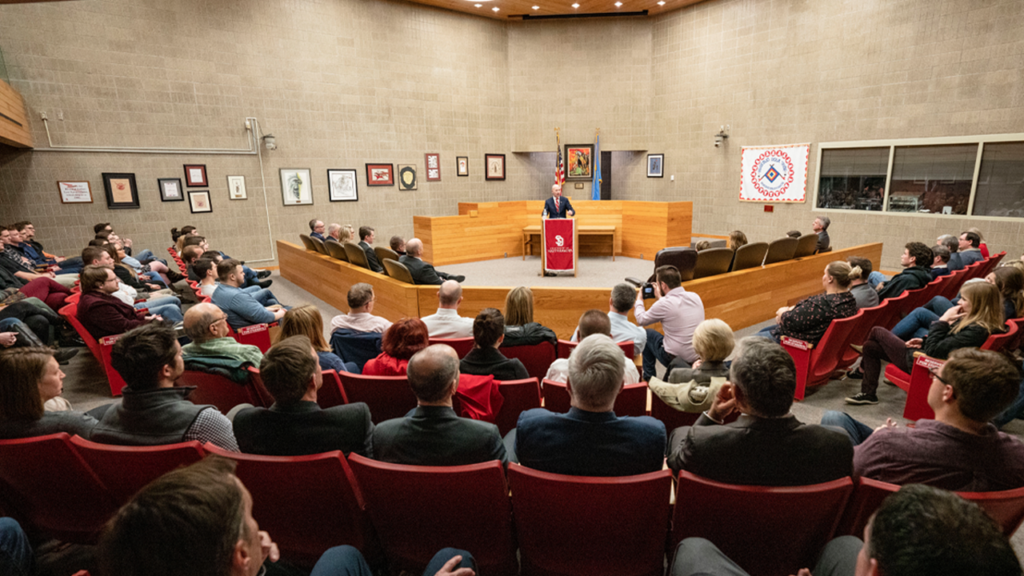
John Hult/South Dakota Searchlight
The University of South Dakota Knudson School of Law saw its largest incoming class in over a decade this fall, according to a report prepared for lawmakers by Dean Neil Fulton.
The 88 students in the class of 2026 is a reflection of the school’s “investment in admissions personnel and resources,” Fulton wrote in his letter to the South Dakota Legislature’s Joint Appropriations Committee.
The letter also says that exam passage rates stood at 88% for the graduating class of 2022 based on “ultimate bar passage,” meaning passage within two years of graduation. The first-time passage rate was 72% for July 2023’s USD Law graduating class, the letter says.
The National Conference of Bar Examiners puts the total South Dakota examinee passage rate – which would include out-of-state graduates seeking admission to the South Dakota Bar – at 75%.
Fulton wrote that the first-time passage rate for USD Law was higher than that of graduates in North Dakota, Nebraska, Wisconsin and Wyoming.
Ninety-six percent of 2023 USD Law grads found jobs in the legal field, with 68% working in South Dakota.
On Tuesday, Fulton told South Dakota Searchlight that the letter’s figures signal a solid foundation for the school.
The first-time passage rate for USD Law students dipped slightly this spring, which the dean attributes to learning disrupted by the COVID-19 pandemic for the 2023 graduating class.
“Our bar passage and placement numbers and trend remain strong,” Fulton said.
The six-page report to appropriators is meant to outline the school’s goals and successes in advance of the budget hearings that take place near the beginning of each legislative session. The “letter of intent” has been filed each fall since 2018, the year lawmakers added $300,000 in ongoing annual funding to “improve sustainability” at the Vermillion-based institution.
Bar passage rates had dropped significantly at that point, but have crept up since the implementation of adjustments to the scoring system, which also took place in 2018. Since then, examiners in South Dakota have been able to award points from a high essay score to boost a test-taker’s multiple choice score.
The 2023 letter of intent comes after two consecutive years of debate in the Legislature on bills that would have struck the bar exam requirement for USD Law grads and offered alternative paths to bar membership. Critics argue that changes to the bar exam scoring system put in place in 2014 continue to have a negative impact on passage rates, particularly for people of color.
South Dakota Supreme Court Justice Steven Jensen was among the officials to spearhead the creation of a bar exam study committee tasked with recommending possible alternatives – a move that led the 2023 bill’s sponsor to shelve the proposal.
The work of that group was highlighted in Fulton’s letter, as well. The group “appears on track to recommend a pilot program for a limited number of applicants to obtain (bar) admission through supervised practice and an assessment of a portfolio of their work.”
“This option will likely be limited to applicants entering public service or rural practice in an effort to draw more lawyers to high need areas,” Fulton wrote.
The committee is expected to release its full report and recommendations to the state Supreme Court prior to the start of the 2023 session.
